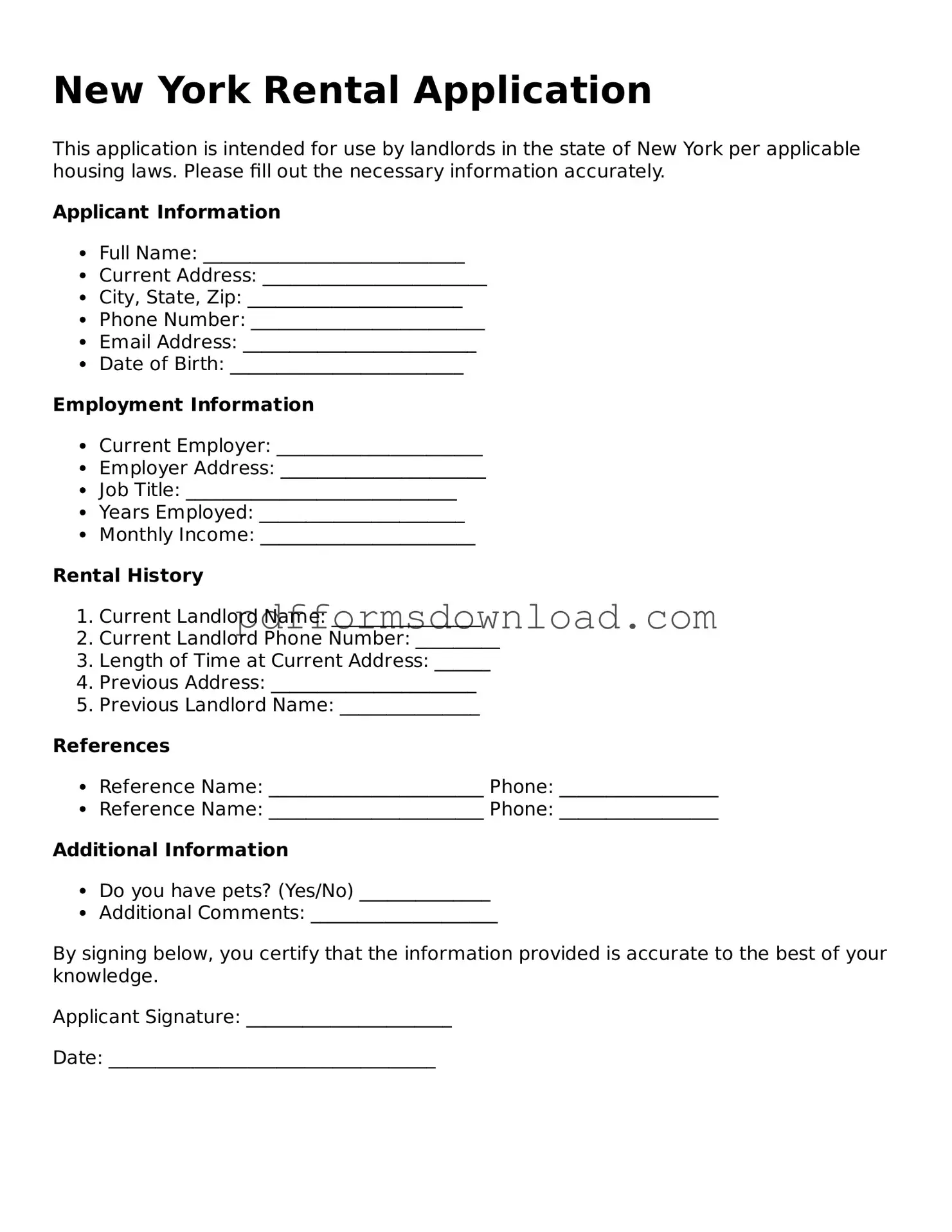What is a New York Rental Application form?
The New York Rental Application form is a document that prospective tenants fill out when applying to rent a residential property. This form collects essential information about the applicant, including personal details, rental history, employment information, and references. Landlords use this information to assess the suitability of applicants for their rental units.
What information do I need to provide on the application?
Typically, the application requires your full name, contact information, Social Security number, employment details, and rental history. Additionally, you may need to provide references, including previous landlords and personal contacts. Some applications also ask for financial information, such as income and bank details, to evaluate your ability to pay rent.
Is there a fee for submitting a rental application?
Yes, many landlords charge an application fee to cover the costs of background checks and processing the application. In New York, this fee is often capped at a certain amount, usually around $20. Be sure to ask the landlord about the fee and what it covers before submitting your application.
How long does it take to process a rental application?
The processing time for a rental application can vary. Generally, landlords aim to complete the process within a few days to a week. However, factors such as the thoroughness of background checks and the responsiveness of references can influence the timeline. It's advisable to follow up with the landlord if you haven't received a response within a reasonable timeframe.
Can I be denied a rental application? If so, why?
Yes, landlords can deny a rental application for various reasons. Common factors include a poor credit history, insufficient income, a negative rental history, or unfavorable references. Additionally, if the application contains false information, this can lead to immediate denial. Understanding the criteria used by the landlord can help you prepare a stronger application.
What should I do if my application is denied?
If your application is denied, the landlord is required to provide a reason for the denial. You can request this information and ask for clarification if needed. Depending on the reason, you may have the option to address the issue, such as providing additional documentation or correcting any inaccuracies. In some cases, it may be beneficial to seek alternative rental options.
Are there any protections against discrimination in rental applications?
Yes, federal, state, and local laws protect individuals from discrimination in housing. The Fair Housing Act prohibits discrimination based on race, color, national origin, religion, sex, familial status, or disability. In New York, additional protections exist for sexual orientation, gender identity, and other characteristics. If you believe you have been discriminated against, you can file a complaint with the appropriate agency.
Can I withdraw my rental application after submission?
Yes, you can withdraw your rental application after submission, but it is courteous to inform the landlord as soon as possible. Some landlords may have specific policies regarding withdrawals, and it’s best to review the application terms. If you decide to withdraw, communicate clearly and promptly to avoid any misunderstandings.

